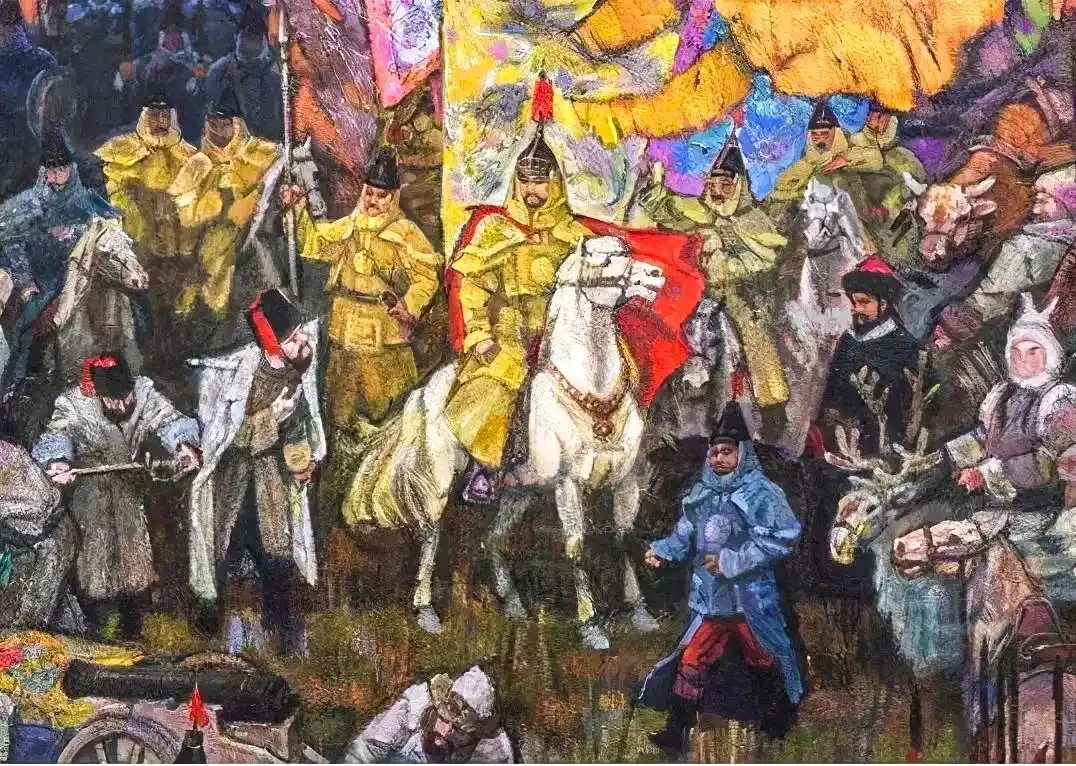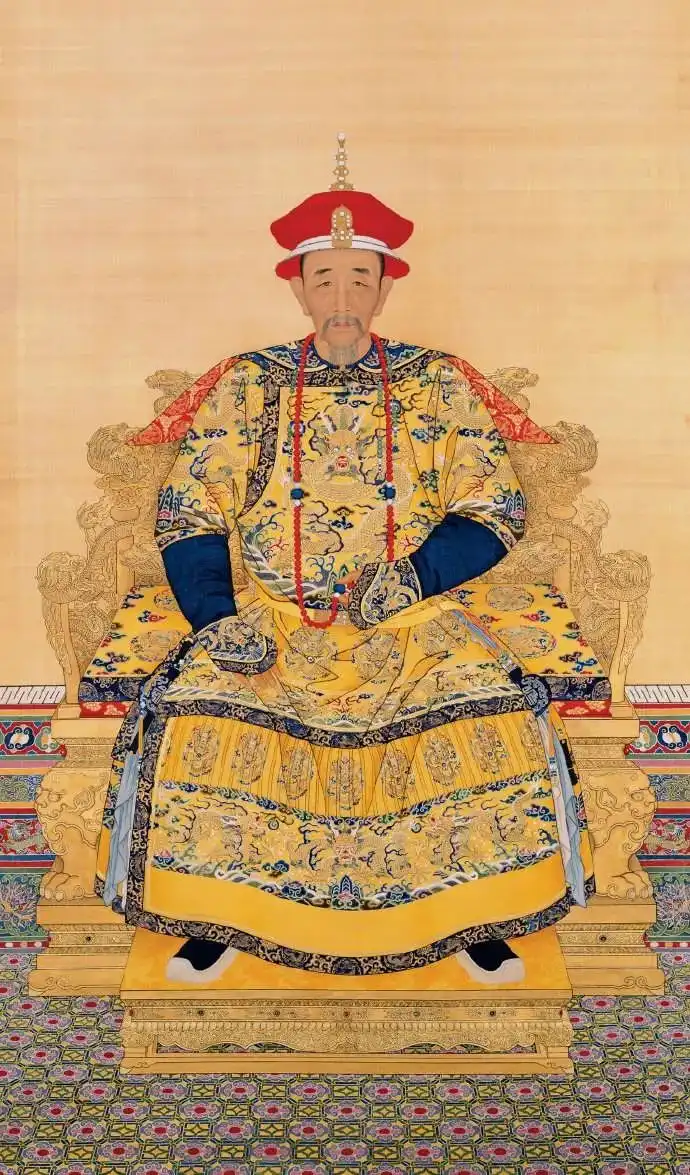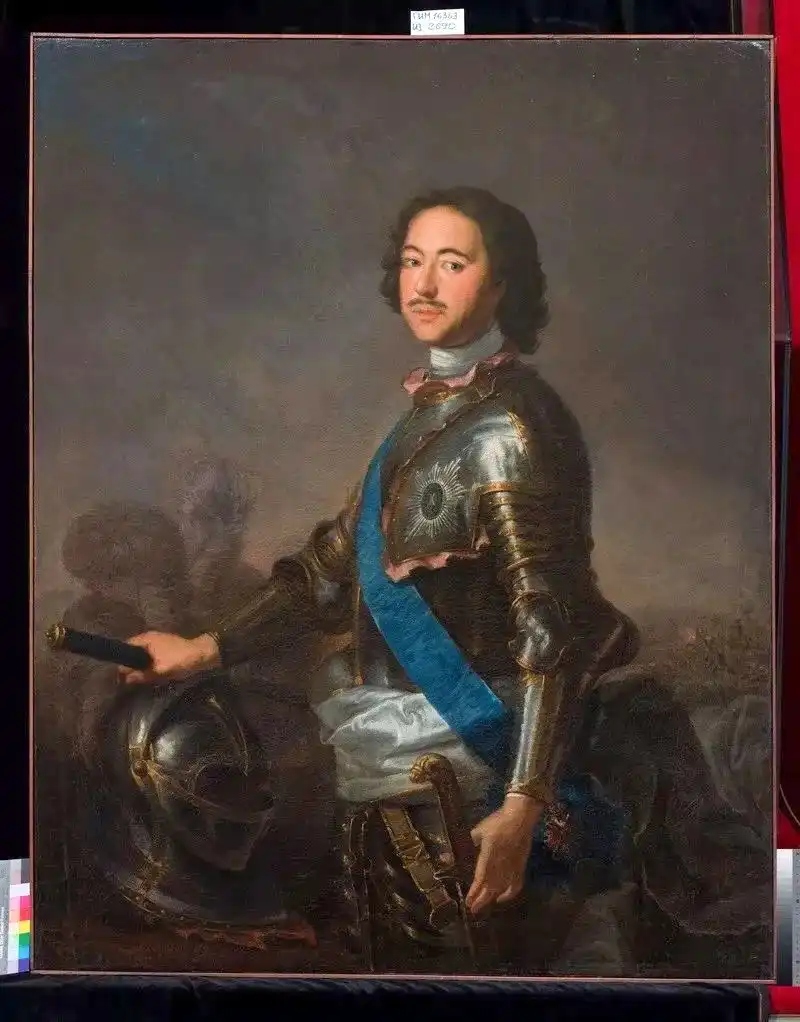Battle of Jaksa:The major victory of the early anti-aggressive war of Qing and Russia and its far-reaching influence

The Battle of Yaksa was a major battle carried out by the Chinese army and people to resist tsarist Russia's invasion of the Heilongjiang River Basin in Northeast China during the reign of Emperor Kangxi in the Qing Dynasty. After the war, Qing Russia signed the Treaty of Nibuchu, which divided the eastern border between the two countries, and legally affirmed that the vast areas of the Heilongjiang River Basin and the Wusuli River Basin belong to China. The victory of the war maintained the stability of China's northeast border areas and the peace of life of the people of all ethnic groups, and was an important part of China's early anti-aggression war. Although the Qing army won the battle of Yaksa, this victory failed to show the strong military strength of the Qing army. On the contrary, it can be seen that the Qing army lagged behind the defeated Russian army in terms of firearm equipment and military technology. Victory in the war can not cover up its lack of overall military strength, as well as the lag in the face of world military reform. After winning what was regarded as a "brilliant victory", the Qing army almost stagnated its backward military strength for more than a hundred years. The Qing government also failed to realize the importance of developing firearms equipment and military technology. In contrast, the western world has undergone earth-shaking changes and development, and profound changes have taken place in the balance of power between the East and the West. When the Opium War broke out a hundred years later, the Qing Dynasty noticed the great changes in the situation and exclaimed "the great change that has not happened in three thousand years." But did not realize that this kind of change has already begun quietly.
war background
At the end of the 16th century, Jianzhou Jurchen rose. Later, through the battles of Nurhachi and Huangtaiji, the various Jurchen tribes were unified and the entire northeastern region of China was reunified. In the seventh year of Chongde of the Qing Dynasty (1642), Huang Taiji announced to the world:"I Zan inherited the legacy of Emperor Taizu. Since he ascended the throne, he has been blessed by heaven. From the northeastern coast to the northwest coast, the country where dogs and deer were used, as well as the land where black foxes and sables were produced, no farming, fishing and hunting were involved. The customs of living, the Erut tribe, even the source of the Uran River, and the distant countries, are submitting." The northeastern coast refers to the Sea of Okhotsk, the northwest coast refers to Lake Baikal, and the dogs refer to the Hezhe and Fiyakka ethnic groups in the middle and lower reaches of Heilongjiang, the Lu tribe refers to the Oroqen and Ewenki ethnic groups, and the Erut refers to Mongolia. In other words, at least in 1642, the Heilongjiang Basin was fully incorporated into the territory of the Qing Dynasty, and all ethnic groups in the Heilongjiang Basin were affiliated to the Qing regime.

Kangxi
Russia is originally a landlocked country in Eastern Europe, which is thousands of miles away from China and has no border with its territory. since the formation of a unified country with Moscow as the center in the 16th century, tsarist Russia began to annex land and expand its territory. The Russian invading army Cossack carried out the czar's pardon of "if it is impossible to put the residents of the new land under Russian rule by gentle means, to suppress it by force and turn the land into ruins", and carried out aggression brazenly. In the fifth year of Chongzhen of the Ming Dynasty (1632), tsarist Russia expanded eastward to the Lena River Basin and established the city of Yakutsk. From then on, Russia was adjacent to China, and Yakutsk became the command center for tsarist Russia to invade Northeast China. The Qing Dynasty called Russia "Raksha" and also wrote "Eros". "Russia straddles the northern part of Asia and Europe. In the early Qing Dynasty, there were Luocha people in eastern Russia who collected tribute from the oriental coast and arrived on the north bank of Heilongjiang. According to Yaksa and Nibuchu, the tree city lived and invaded the tribes. " It can be seen that the eastward expansion of tsarist Russia has seriously threatened the security of the northeast frontier of China and caused heavy suffering and disaster to the people of all ethnic groups in the Heilongjiang River Basin.
Jaksa was originally the residence of the Aola family of the Daur nationality in China. It is located on the north bank of the upper reaches of Heilongjiang. It is a key point of land and water. It is in a dangerous situation and easy to defend but difficult to attack. In the eighth year of Shunzhi (1651), the tsarist Russian invader Habarov broke into the territory of the Dahur people in China and "took a fancy to the city's location and defense facilities... decided to stay in the city, strengthen and use it as his so-called station on the Amur River." On this land,"a square city with four corners was built eighteen feet long and thirteen feet wide, surrounded by wooden walls and a ditch two feet wide... A high tower was built and a gate for entry and exit was opened downstairs. The upper level of the tower is a meeting room, with outposts set up in the room, from which you can monitor the enemy's approach." Tsarist Russia used the city of Jaksa as a stronghold and carried out a series of looting and destruction,"suppressing and robbing people, looting villages, and seizing mink skins, and committing all kinds of evil." Under the ravages of this gang of bandits, this fertile area of China's Heilongjiang River Basin has become a wilderness, barren countryside, and people have been displaced.
Kangxi once said:"Raksha invaded our borders and fought on the Heilong, Songhua, and Humar rivers. According to the Nibchao and Jaksa places where our people live... This is the reason why we engaged in Raksha." Kangxi hoped to persuade and urge the Russian army to voluntarily withdraw from Chinese territory. In his pardon letter to the tsar, he said:"If you have pity on the border people and prevent them from being uprooted, and do not cause war, you should quickly withdraw to the Raksha of Jaka and live in a place such as Jaku... Then there will be no trouble, send envoys from trade and live in harmony." However, tsarist Russia not only turned a deaf ear to the Qing government's letters, but also strengthened its colonial rule in all aspects. They sent more troops to strengthen its defenses in Jaksa and other places, strengthened city fortifications, built military facilities, and collected and stored food and supplies. The intention of aggression was obvious.
They continued to expand the incident,"disturbing the residents of Sauron, Hezhe, Feiyakha, and Chiler, and plundering the population." It further violated China's sovereignty and territorial integrity. The Qing government at that time was committed to consolidating the political power and had no time to look north. After putting down the rebellion of the Three Fassars and recovering the Taiwan area, Kangxi made up his mind to solve the "Luosha" issue by force. he instructed:"If we did not create military power, we would have no knowledge of punishment and fear, and it would spread, so we decided to suppress it." In order to prepare for this war, Kangxi issued an order to build cities and station troops in Heilongjiang and Humaar, store food, make ships, plan to open up farmland, and open post roads, in an attempt to completely eradicate Tsarist Russia's threat to the northeastern frontier of the Qing Empire.
Jingyuan Beijiang
On May 22, the 24th year of Kangxi (1685), the Qing army arrived at the foot of the city of Jaksa by waterway. In order to demonstrate the leniency of the emperor, Peng Chun, the commander-in-chief of the Qing army, issued an ultimatum to the Russians in front of the battle:"I have repeatedly sent people to transfer documents, ordering you to withdraw your troops and return them to us as fugitives... If you still refuse, the soldiers will break through the city of Jaksa and wipe out your troops." China has demanded that Russian troops withdraw to avoid unnecessary conflicts. However, the Russian army resisted stubbornly and stayed for help. On the 24th, the Qing army formed an array on both land and land and surrounded Yaksa. At night, the Qing army set up blocking earthen ridges in the south of the city, using bows and crossbows as a feint attack, and secretly placed red-clad cannons in the north and east and west wings. At dawn on the 25th, artillery fire erupted and began to fire violently into the city. The city of Jaksa at that time was a hellish sight in the writings of Russian historians:"Cannons destroyed towers and castles, and rockets (burning arrows) fired from the camp burned churches, bell towers, shops and food warehouses." The Russian invading army suffered heavy casualties and knew that they would never come to a good end if they continued to resist. Therefore, the commander of the Qing army, Torbuzin, begged to surrender. Peng Chun, the commander of the Qing army, followed the order of Emperor Kangxi before the war,"Do not kill a person, so that he can return his homeland, and declare that I will be gentle and far-reaching." He accepted the surrender of the Tsarist Russian invading army and gave them lenient treatment,"along with their weapons, and repatriated them." Torbuzin and the remnants of the Russian army were allowed to return from Jaksa to Nebuchu.

Peter I
The Qing army achieved a great victory in the first Battle of Jaksa, which was faster and smoother than the Qing government expected. "Oros, which had been occupied for 40 years, was broken in a few days. Get the city of Jaksa. Take advantage of your achievements." Everyone in the court and the country was immersed in the joy of victory. However, amid the praises of victory, the paralysis of peace began to gradually grow. Although Kangxi clearly instructed Peng Chun and others on the front line to frequently send scouts to patrol after the war, this instruction was not taken seriously by the generals, perhaps due to factors such as the distance and inconvenient supplies. After burning the wooden Jaka Castle and other defense facilities, the Qing army withdrew to Heilongjiang City (now Hanhui) and other places to recuperate. They did not consider the importance of the original site of Jaka, nor did they leave a single soldier to guard it. They did not even send scouts responsible for reconnaissance, and did not even harvest the ripe crops around Jaka.
Not long after the remnants of the Russian army fled back to Nebuchu in confusion, Tsarist Russian reinforcements followed with artillery and enough weapons and equipment. After the invaders learned the news that the Qing army had completely withdrawn from the city of Jaka, they were surprised and happy and led the Cossacks to reoccupy the city of Jaka. The resurgent invaders rebuilt fortresses and fortifications on the burned old castle site:The city wall was quickly built, with wood on both sides, soil in the middle, and soil on the outside to prevent fire attacks. Gunhouses were built on the city wall. The governor's yamen and 10 military camps were built in the city, wells and trenches were dug, and a large amount of food was collected. The tsarist Russian invaders made preparations to defend the city of Jaksa for a long time. A few months after tsarist Russia reoccupied Yaksa, the Qing Dynasty was still unaware of it. It was not until the beginning of the next year that the Qing court received a report from the front line. Tsarist Russia's perfidious behavior made Kangxi furious. Kangxi ordered Heilongjiang General Sabusu to lead troops immediately.:"Now that Raksha has returned to Yaksa to build a city and occupy itself, if we don't attack quickly, we will surely accumulate food and hold on to it. It's not easy to plan... He led his 2,000 people to attack Yaksa City... There are 400 Fujian Tengpai soldiers in the Eight Banners Han Army. I advise Hou Lin Xingzhu to lead them." In July, General Sabusu led more than 2,000 Qing troops to the city of Yaksa and wrote again to warn the Russian troops and persuade them to take the initiative to withdraw:"You secretly returned, rebuilt the castle, and defended it. You also bullied our fishermen and hunters... Now that our army is at the foot of the city, we will never give up easily, you
